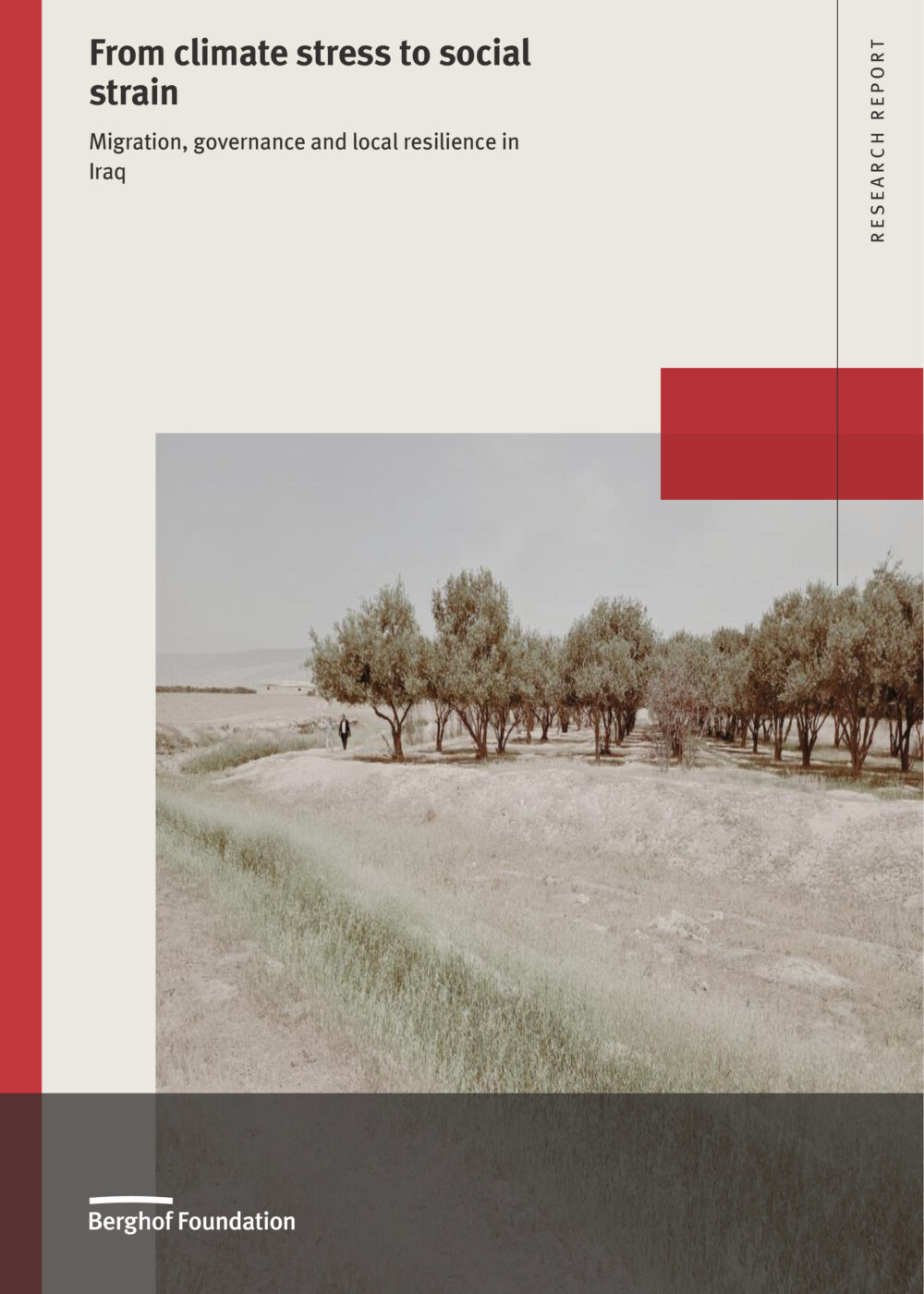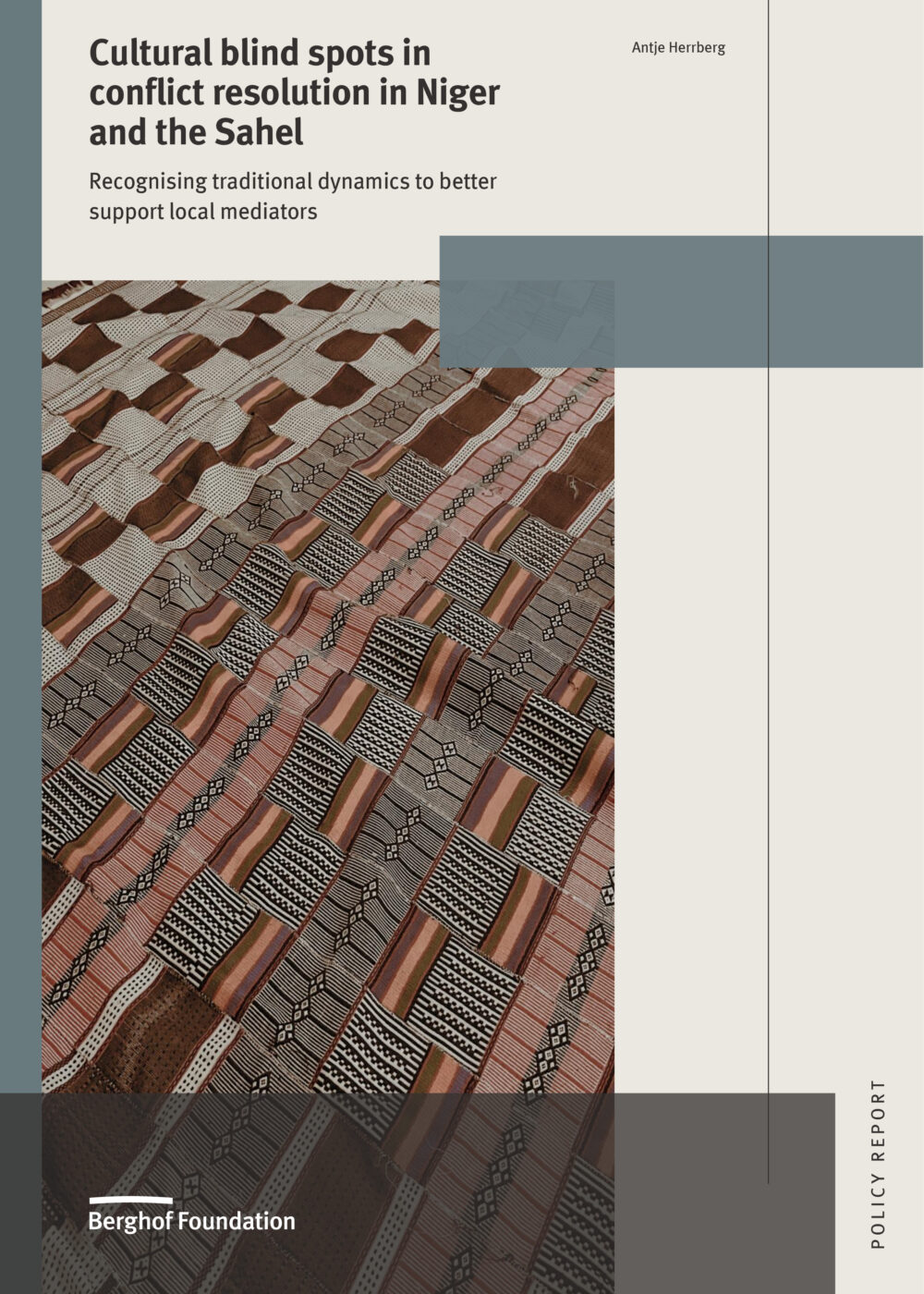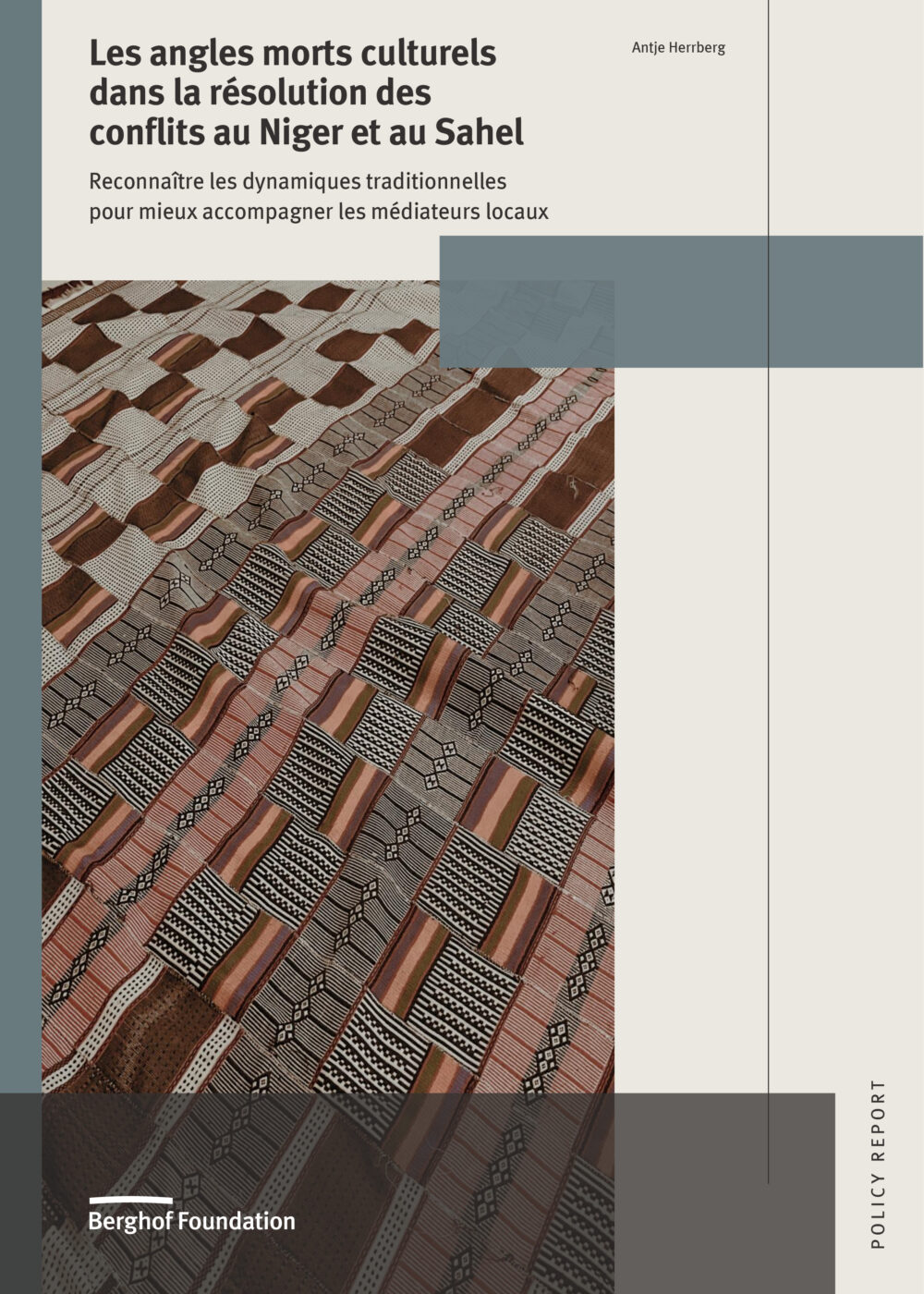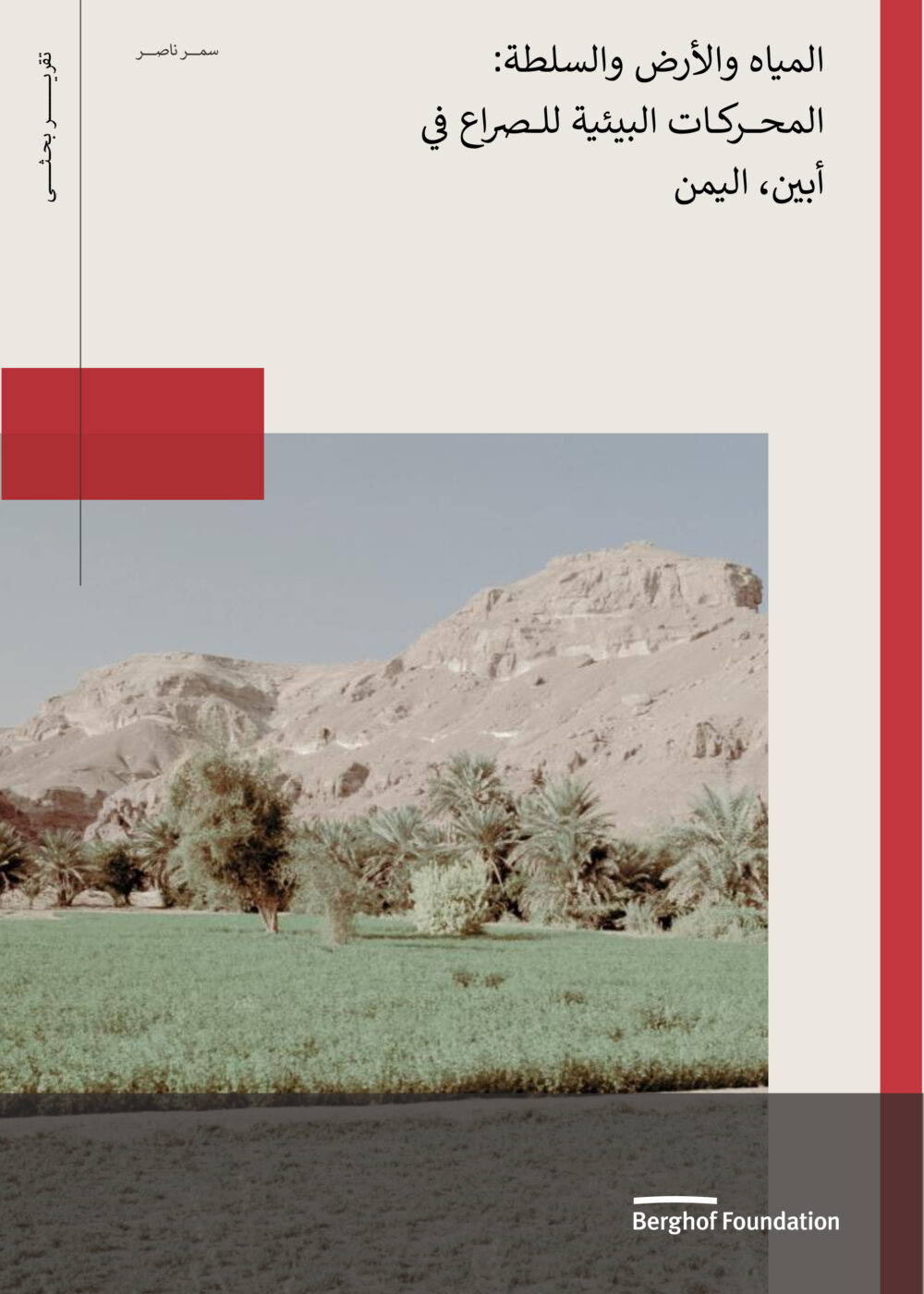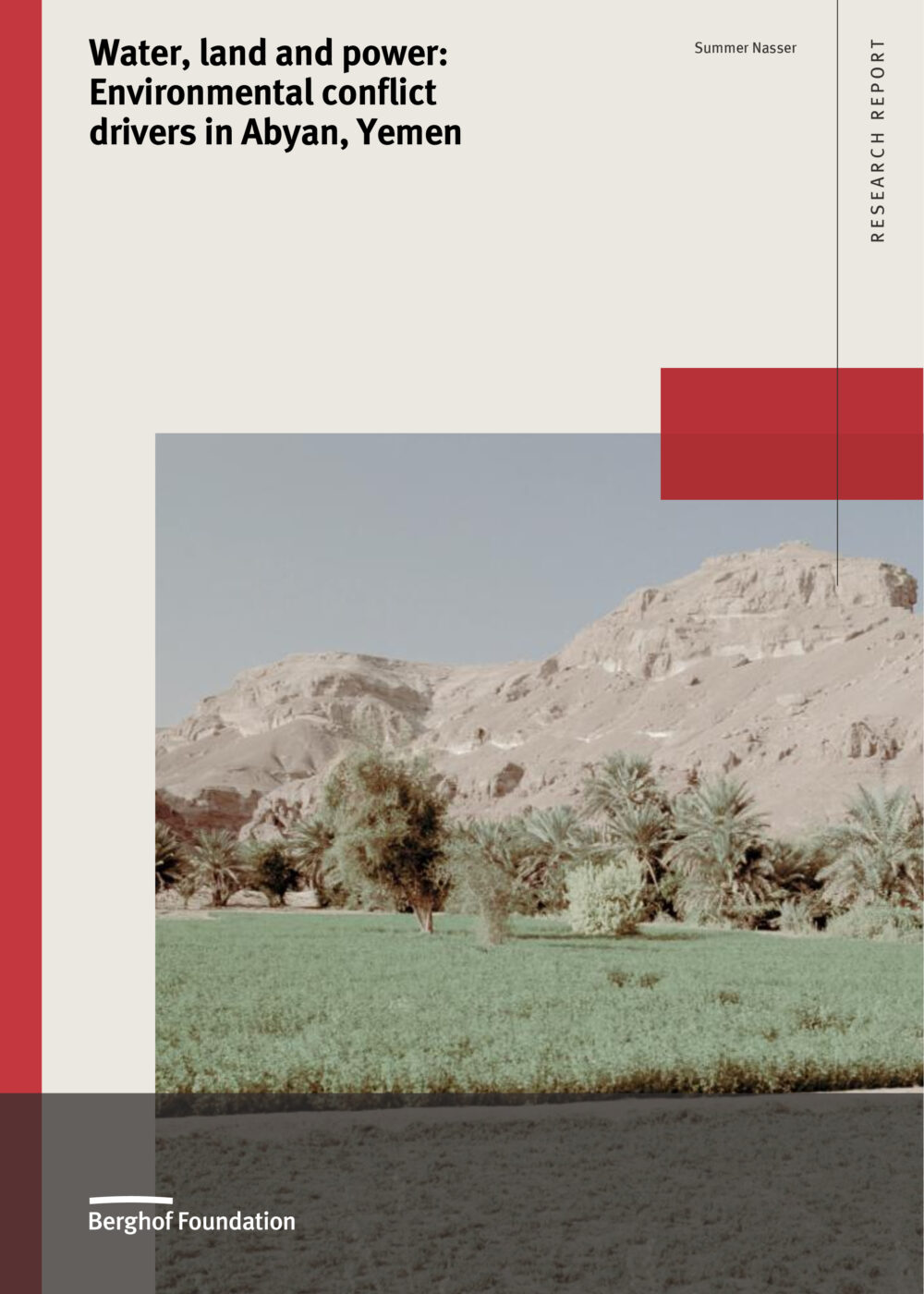1 Feb 2012
The CNDD-FDD in Burundi: The path from armed to political struggle
Transitions Series No. 10
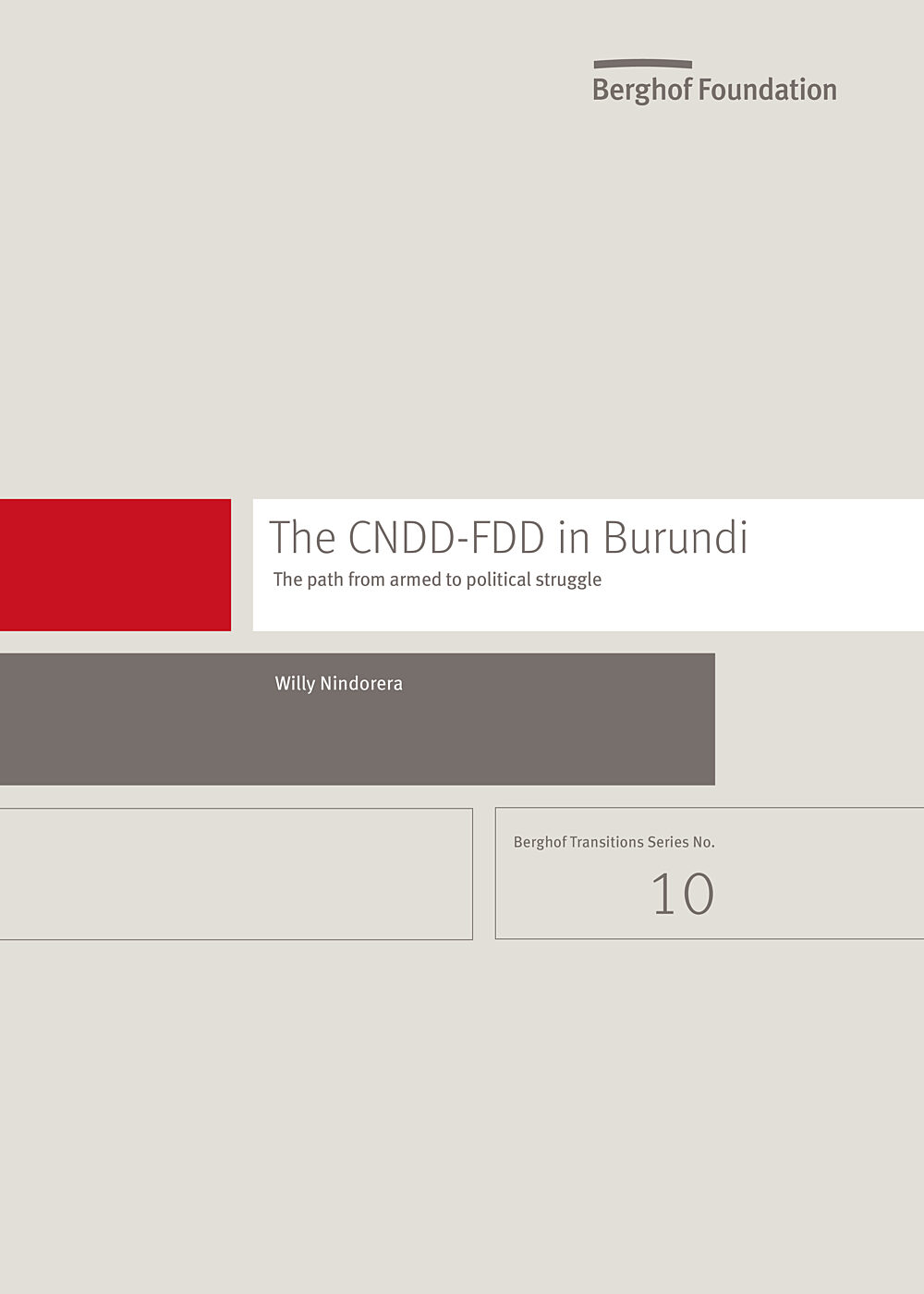
The civil war sparked by the assassination of President-elect Melchior Ndadaye in October 1993 pitted a variety of mostly Hutu rebel movements – principally the National Council for the Defence of Democracy and the Forces for the Defence of Democracy (identified by its French acronym, CNDD-FDD) – against Burundi’s regular army. The principal demands of the rebel groups were the return to constitutional law, the institution of democratic majority rule and, most especially, the reform of the Tutsi-dominated army that was viewed as the centre of power. The peace negotiations initiated in June 1998 in Arusha (Tanzania) led in August 2000 to a peace and reconciliation agreement without a ceasefire – mainly because of internal dissent within the main rebel groups and the virtual exclusion of the real belligerents from the negotiation table. Eventually, the ceasefire agreement signed in November 2003 between the CNDD-FDD of Pierre Nkurunziza and the Transitional Government led by President Domitien Ndayizeye enabled peace to return to most of the territory – with the exception of the zones where the remaining rebel group, the Party for the Liberation of the Hutu People and National Forces of Liberation (PALIPEHUTU-FNL), which was hostile to any peace agreement with the government, continued to operate.
Authors
Willy Peter Nindorera
Editors
Véronique Dudouet, Katrin Planta
That breakthrough in the peace process triggered two irreversible processes: a reform of the defence and security forces, integrating former Hutu armed rebels, and a return to a democratic system through regularly scheduled elections with universal suffrage. The prospect of participating in the general elections of 2005 convinced the CNDD-FDD to become a political party and, from then on, to conduct its political struggle exclusively on the ideological battleground. The former rebel movement comfortably won the 2005 elections, leading to a radical reconfiguration of the political landscape. Five years later, the CNDDFDD – in control of all local and national institutions, and able to boast of its achievements in education and infant healthcare in particular – consolidated its victory in the 2010 elections, which were tarnished, however, by the opposition’s boycott.
This study analyses the process that pushed the CNDD-FDD rebels to abandon their armed struggle and adopt a non-violent strategy in pursuit of their political goals – as seen by their former and current leaders.
About this Publication Series
This case study is one of a series produced by participants in an ongoing Berghof research project on transitions from violence to peace. The project’s overall aim is to learn from the experience of those in resistance or liberation movements who have used violence in their struggle but have also engaged politically during the conflict and in any peace process. Recent experience around the world has demonstrated that reaching political settlement in protracted social conflict always eventually needs the involvement of such movements. Our aim here is to discover how, from a non-state perspective, such political development is handled, what is the relationship between political and military strategies and tactics, and to learn more about how such movements (often sweepingly and simplistically bundled under the label of non-state armed groups) contribute to the transformation of conflict and to peacemaking. We can then use that experiential knowledge (1) to offer support to other movements who might be considering such a shift of strategy, and (2) to help other actors (states and international) to understand more clearly how to engage meaningfully with such movements to bring about political progress and peaceful settlement.
- M-19's Journey from Armed Struggle to Democratic Politics: Striving to Keep the Revolution Connected to the People. Berghof Transitions Series No. 1
Mauricio García Durán, Vera Grabe Loewenherz, Otty Patiño Hormaza. 2008
- The ANC and South Africa’s Negotiated Transition to Democracy and Peace. Transitions Series No. 2
Mac Maharaj. 2008
- Seeking State Power: The Communist Party of Nepal (Maoist). Transitions Series No. 3
Kiyoko Ogury. 2008
- The Politics of Transformation: The LTTE and the 2002-2006 peace process in Sri Lanka. Transitions Series No. 4
Suthaharan Nadarajah, Luxshi Vimalarajah. 2008
- From Politics to Arms to Politics Again: The Transition of the Gerakan Aceh Merdeka (Free Aceh Movement - GAM). Transitions Series No. 5
Agus Wandi, Wolfram Zunzer. 2008
- The Basque Country: The Long Walk to a Democratic Scenario. Transitions Series No. 7
Urko Aiartza Azurtza, Julen Julen Zabalo. 2010
- The Road to Peace in Ireland. Transitions Series No. 6
Bairbre de Brún. 2008
- The KLA and the Kosovo War: From Intra-State Conflict to Independent Country. Transitions Series No. 8
Armend R. Bekaj. 2010
- From Revolutionary War to Democratic Revolution: The Farabundo Martí National Liberation Front (FMLN) in El Salvador. Transitions Series No. 9
Alberto Martín Álvarez. 2010
- “Living Freedom” – The Evolution of the Kurdish Conflict in Turkey and the Efforts to Resolve It. Transitions Series No. 11
Adem Uzun. 2014
- ETA’s disarmament in the context of international DDR guidelines: Lessons learnt from an innovative Basque scenario. Transitions Series No. 12
Basque Permanent Social Forum. 2017
- Peace Prevails: A Review of the Process to Peace and Reconciliation between the Afghan Government and Hezb-e Islami. Transitions Series No. 13
Mushtaq Muhammad Rahim. 2019
- سوله بریا ده. د افغان حکومت او حزب اسال مي تر منځ د سولې هوکړه لیک
Mushtaq Muhammad Rahim. 2019
- صلح پیروزی است. مروری بر پروسه صلح و مصالحه میان حکومت افغانستان و حزب اسلامی
Mushtaq Muhammad Rahim. 2019
Thanks for your interest
If you find this publication useful, please consider making a small donation. Your support enables us to keep publishing.



